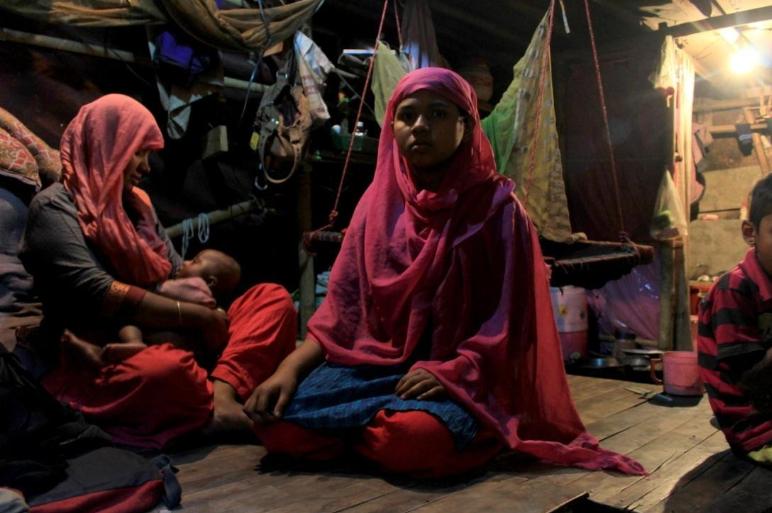In Search Of A Home : Rohingya Refugees In New Delhi

NEW DELHI: The Rohingyas have been described as “one of the most persecuted minorities in the world” by the United Nations, yet the Rohingya refugee crisis is almost entirely absent from world headlines, and ignored even by many prominent international organisations and world governments. Rohingya Muslims belonging to Arakan region of Myanmar have been expelled from their homeland following the clashes with Rakhine Buddhist population. The seeds of this hostility were sown back in the 18th century when the Buddhist from the south of Burma conquered the Arakan region which had a considerable population of Muslims who were ultimately forced to flee to neighboring Bengal, then part of the British India. Again, to further their economy, Britishers sponsored a forced migration of many people from Bengal to the Arakan region (this included the Rohingyas and the native Bengalis) for farming purposes. Hence, perpetuating the conflict which escalated into a large scale violence, reaching its high point in 2012.
In the recent past, many Rohingyas have migrated to countries like Pakistan, Malaysia, Bangladesh, India, Indonesia etc, They have been living in poor conditions and have witnessed physical as well as psychological violence.
In India the Rohingyas are living in refugee camps in New Delhi, Hyderabad and elsewhere. In New Delhi, they stay in Kanchan Kunj area. The only mark of identification they have is an identity card provided by the UNHCR. The latter also looks into their grievances and immediate needs. The men of the camp work inside the camp in small constructions or are employed outside in local market.
There is a school for children in the vicinity and the fees is paid by the Zakat Foundation itself, but as one of the kids said, the foundation is planning to stop the fee payment soon.
The camp comprises of 50 families, although all share common grievances there is psychological violence inside the camp. Also, there are many activists amongst the residents who organise regular protests, sometimes near Jantar Manta while other times outside the Embassy of Myanmar. 'We just want our voices to be heard and get the attention we deserve."said Mohammad Farooq who owned large farms back in Myanmar, ("I had 5-6 people working under me. I had a well established Construction business")and has rescued around 10 Rohingya girls who were being trafficked from Bangladesh to India.
Cover Photo: Ms. Tasleema with her youngest and the oldest child. She fights against all the odds and social pressure within the refugee camp to make her daughter Mizan an educated woman. Apart from school she sends her to tuition . Her husband, she says, is a drug addict and doesn’t care much about the family hence taking a very strong move , she is planning on giving him a divorce.
In 2012, Rohingyas migrated to India and in New Delhi they settled on a land provided by the Zakat Foundation. They now live in small packed rooms made up of either plywood or curtains and bamboos.
At present many men are involved in a small construction project of a masjid inside the camp. They receive Rs.300 per day.
Sanjeeda Begum, runs a small shop funded by the UNHCR
(Nawal is a student at South Asian University, Delhi. Follow her on Instagram at: @peaceandpyjamas.)


